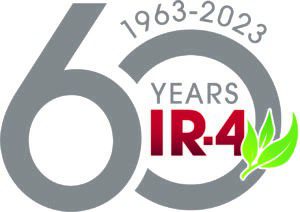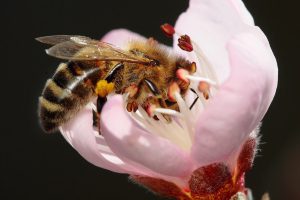 The IR-4 Project Commemorates 60 Years of Impact
The IR-4 Project Commemorates 60 Years of Impact
This year, The IR-4 Project commemorates 60 years of operation. Since its establishment by land grant universities and the U.S. Department of Agriculture in 1963, IR-4 has championed specialty crop growers by facilitating the registration of safe, effective pest management solutions to meet their unique needs.
 Specialty crops (which include fruits, vegetables, nuts, herbs, and horticulture crops) are not typically served by agrochemical companies’ registration efforts. Larger acreage, “major crops” (like corn and soybeans) typically yield higher returns on investment. This “minor use problem” spurred the founding of IR-4.
Specialty crops (which include fruits, vegetables, nuts, herbs, and horticulture crops) are not typically served by agrochemical companies’ registration efforts. Larger acreage, “major crops” (like corn and soybeans) typically yield higher returns on investment. This “minor use problem” spurred the founding of IR-4.
IR-4 upholds specialty crops as essential components of a healthy diet, a thriving landscape, and a robust U.S. economy. Since its founding, IR-4 has secured over 23,000 pest management product registrations through the Environmental Protection Agency (EPA) for food crops (and countless others for ornamental crops). IR-4 evaluates a range of tools — including reduced-risk chemical and bio-based pesticides, as well as emerging technologies and integrated solutions.
IR-4 helps secure pest management products for specialty crops— including fruits, vegetables, nuts, herbs and flowers. Image courtesy of NC State University.
Notable registrations facilitated by IR-4 include Chlorantraniliprole (a reduced-risk conventional pesticide) and Spinosad (a bio-based insecticide approved for both conventional and organic growers). As a result of IR-4’s submissions, these products are approved by EPA for use on numerous specialty crops. IR-4 also spearheaded the registration of several biopesticides to manage Varroa mites in honeybee colonies. These registrations help reduce dietary exposure to pesticides, increase growers’ pest management options, and secure the vitality of the U.S. food supply.
According to an economic impact study by Michigan State University in 2022, IR-4 contributes $8.97 billion annually to the gross domestic product. Additionally, seven jobs today can be attributed to every $1,000 of public investment in IR-4.
Federally funded through USDA, IR-4 works closely with the USDA National Institute for Food and Agriculture (NIFA), USDA Agricultural Research Service (ARS), EPA, and international partners to conduct research, facilitate registrations, and harmonize global regulations.
“Not many government-funded organizations survive for 60 years on a year-to-year funding basis,” said Dr. Jerry Baron, Executive Director of The IR-4 Project. “We continue to be relevant to our stakeholders in the farming community. Because of our relevance, they continue to support us in many ways, including letting the decision-makers in Washington D.C. know the importance of the organization— why this program should continue to exist, now and into the future.”
Headquartered at North Carolina State University since 2021(formerly at Rutgers University), IR-4 spans the U.S. through four regional offices, each working closely with growers, commodity groups, state liaisons, land grant university researchers, extension, and industry leaders. Regional offices are located at: University of Florida, University of Maryland Eastern Shore, Michigan State University, and University of California, Davis.
As the future of pest management and its regulation grows increasingly complex, IR-4 has the expertise to guide the specialty crop community forward with innovative, pragmatic solutions. While commemorating 60 years of impact through 2023, IR-4 invites the specialty crop community to follow along, learn more about the project, and take part in its evolving, multifaceted work. Visit the IR-4 website to connect via email, newsletter, or social media.
We are here to share current happenings in the bee industry. Bee Culture gathers and shares articles published by outside sources. For more information about this specific article, please visit the original publish source: https://www.ir4project.org/news/60yearsannouncement/






